![Best wishes for Ramadan]()
Jun 9, 2016 | Non categorizzato
 “May glory be upon you my Lord, He who is the Adored One, the One to be adored, the Eternal One, who existed from all times, who loves us, whose Mercy and Power embrace the universe (…). You are the Adored One, Oh Lord, You are the Master who loves and forgives. Your forgiveness and Your mercy are infinite, Oh Lord, You help those who are afflicted, the Consoler in every grief, the Refuge for those whose heart is broken.” (From a prayer by Ali ibn Abi Talib, cousin and son-in-law of the Islamic prophet Muhammad)
“May glory be upon you my Lord, He who is the Adored One, the One to be adored, the Eternal One, who existed from all times, who loves us, whose Mercy and Power embrace the universe (…). You are the Adored One, Oh Lord, You are the Master who loves and forgives. Your forgiveness and Your mercy are infinite, Oh Lord, You help those who are afflicted, the Consoler in every grief, the Refuge for those whose heart is broken.” (From a prayer by Ali ibn Abi Talib, cousin and son-in-law of the Islamic prophet Muhammad)

Jun 9, 2016 | Focolare Worldwide
 The spacious “Knowledge Sharing Centre” Hall of the John Paul II Catholic University of Lublin hosted a Conflicts, Dialogue and Culture of Unity Conference , June 3-4, 2016. The conference was meant to promote the transmission of knowledge through academic dialogue amongst 180 people, including scholars and professors from a variety of academic fields of the social sciences. Ninety five interactive presentations were given that included discussions, questions and answers, as well as requests for sharing research efforts. It was a gift shared amongst different specializations, but also amongst generations and geographic regions of Europe, and it was open to the challenges of the whole world. The conference that opened with Jesús Morán’s presentation titled “The Culture of Unity and the great challenges of humanity today” was motivated by the 20th anniversary of the conferral of the honorary doctorate in Social Sciences to Chiara Lubich, by the Catholic University of Lublin in June 1996. The conferral speech by Professor Adam Biela explained the motivation: The charism of unity “is a concrete and practical actualization of a new vision of social, economic, political, educational structures and of religious relations. It guides, recommends, suggests, teaches and promotes unity” among people. Biela grasped in the revolutionary inspiration of Chiara Lubich that began to manifest itself in the 1940s, the elements of a new paradigm for the social sciences, which led him to coin the unprecedented term: paradigm of unity. The event, 20 years later, in Lublin was “a complex and interesting” meeting, according to Professor Italo Fiorin, president of the graduate school of Formation Science at LUMSA University in Rome, Italy. “. . . especially because of the title, which connects three words: Conflict – reflecting on the not catastrophic but problematic situation of the world that calls for a sense of responsibility. Dialogue: as the path that leads to and changes conflict into something else through positive action. Unity: as the result of a dialogue that is not expressed in reaching a single way of thinking, but of reaching a greater awareness of one’s own identity.” “For 200 to 300 years knowledge has been divided into fields,” says neuro-scientist Catherine Belzung from the University of Tours, France. “But the actual fragmentation prevents progress from being made. The time of interdisciplinary dialogue has arrived. Chiara Lubich’s thought seems to me the paradigm to keep before us when we are interested in interdisciplinary research, because it’s a Trinitarian paradigm: Each field remains distinct, but must have within it the knowledge of the other disciplines in order to be transformed and, in this way, continue the dialogue. I think that the unity and distinction model that is already being proposed in the spiritual field can be very easily transferred to the field of interdisciplinary dialogue.” Professor Marek Rembierz, pedagogue from the University of Silesia, Katowice, Poland, remarked: “It turned out very interesting for me to think on an interdisciplinary plane. And it took quite a change in mentality: modifying the language of science and culture with the language of the heart. It was a source of inspiration for the participants and could also be so for the social life of individuals. Gianvittorio Caprara, full professor of psychology and social neurosciences at Sapienza University in Rome: “Chiara Lubich had some particularly good and fertile intuitions; fertile because they inspired a work, a movement; now they inspire this conference and other research. It’s ongoing reflection that becomes inspiration. One particular discovery for me was the deep significance of the concept of fraternity, precisely in a society like ours that seriously risks not having brothers and sisters anymore. I encourage the Focolare to insist even more on the systematic research of knowledge so that the action can be even more transformative and efficacious.” “With regard to fraternity,” Fiorin says, “Professor Stefano Zamagni worked on a fascinating point in his presentation on the Economy of Communion and even referred it to politics. I believe that such a reading is also applicable to education, to inspire the education and teaching connection and to lead to important educational solutions. It’s a terrain that merits exploring, to which I intend to devote my attention.” The closing session of the conference was entrusted to Professor Biela, Daniela Ropelato, vice-president of Sophia University Institute (IUS) and Renata Simon from the International Focolare Centre in Rocca di Papa, Italy. A thought from Chiara Lubich offered some powerful guidelines to give continuity to the interdisciplinary dialogue that permeated the conference: “In order to welcome [God’s] All within you, you need to be the nothingness of Jesus Forsaken. (. . .) You have to place yourself in front of everyone in a learning position, because you really do have something to learn. And only nothingness gathers all and holds it tightly to itself in unity.” It was an encouragement that was unanimously accepted: to collaborate, with competence, wisdom and an ability to dialogue even on the academic plane.
The spacious “Knowledge Sharing Centre” Hall of the John Paul II Catholic University of Lublin hosted a Conflicts, Dialogue and Culture of Unity Conference , June 3-4, 2016. The conference was meant to promote the transmission of knowledge through academic dialogue amongst 180 people, including scholars and professors from a variety of academic fields of the social sciences. Ninety five interactive presentations were given that included discussions, questions and answers, as well as requests for sharing research efforts. It was a gift shared amongst different specializations, but also amongst generations and geographic regions of Europe, and it was open to the challenges of the whole world. The conference that opened with Jesús Morán’s presentation titled “The Culture of Unity and the great challenges of humanity today” was motivated by the 20th anniversary of the conferral of the honorary doctorate in Social Sciences to Chiara Lubich, by the Catholic University of Lublin in June 1996. The conferral speech by Professor Adam Biela explained the motivation: The charism of unity “is a concrete and practical actualization of a new vision of social, economic, political, educational structures and of religious relations. It guides, recommends, suggests, teaches and promotes unity” among people. Biela grasped in the revolutionary inspiration of Chiara Lubich that began to manifest itself in the 1940s, the elements of a new paradigm for the social sciences, which led him to coin the unprecedented term: paradigm of unity. The event, 20 years later, in Lublin was “a complex and interesting” meeting, according to Professor Italo Fiorin, president of the graduate school of Formation Science at LUMSA University in Rome, Italy. “. . . especially because of the title, which connects three words: Conflict – reflecting on the not catastrophic but problematic situation of the world that calls for a sense of responsibility. Dialogue: as the path that leads to and changes conflict into something else through positive action. Unity: as the result of a dialogue that is not expressed in reaching a single way of thinking, but of reaching a greater awareness of one’s own identity.” “For 200 to 300 years knowledge has been divided into fields,” says neuro-scientist Catherine Belzung from the University of Tours, France. “But the actual fragmentation prevents progress from being made. The time of interdisciplinary dialogue has arrived. Chiara Lubich’s thought seems to me the paradigm to keep before us when we are interested in interdisciplinary research, because it’s a Trinitarian paradigm: Each field remains distinct, but must have within it the knowledge of the other disciplines in order to be transformed and, in this way, continue the dialogue. I think that the unity and distinction model that is already being proposed in the spiritual field can be very easily transferred to the field of interdisciplinary dialogue.” Professor Marek Rembierz, pedagogue from the University of Silesia, Katowice, Poland, remarked: “It turned out very interesting for me to think on an interdisciplinary plane. And it took quite a change in mentality: modifying the language of science and culture with the language of the heart. It was a source of inspiration for the participants and could also be so for the social life of individuals. Gianvittorio Caprara, full professor of psychology and social neurosciences at Sapienza University in Rome: “Chiara Lubich had some particularly good and fertile intuitions; fertile because they inspired a work, a movement; now they inspire this conference and other research. It’s ongoing reflection that becomes inspiration. One particular discovery for me was the deep significance of the concept of fraternity, precisely in a society like ours that seriously risks not having brothers and sisters anymore. I encourage the Focolare to insist even more on the systematic research of knowledge so that the action can be even more transformative and efficacious.” “With regard to fraternity,” Fiorin says, “Professor Stefano Zamagni worked on a fascinating point in his presentation on the Economy of Communion and even referred it to politics. I believe that such a reading is also applicable to education, to inspire the education and teaching connection and to lead to important educational solutions. It’s a terrain that merits exploring, to which I intend to devote my attention.” The closing session of the conference was entrusted to Professor Biela, Daniela Ropelato, vice-president of Sophia University Institute (IUS) and Renata Simon from the International Focolare Centre in Rocca di Papa, Italy. A thought from Chiara Lubich offered some powerful guidelines to give continuity to the interdisciplinary dialogue that permeated the conference: “In order to welcome [God’s] All within you, you need to be the nothingness of Jesus Forsaken. (. . .) You have to place yourself in front of everyone in a learning position, because you really do have something to learn. And only nothingness gathers all and holds it tightly to itself in unity.” It was an encouragement that was unanimously accepted: to collaborate, with competence, wisdom and an ability to dialogue even on the academic plane.
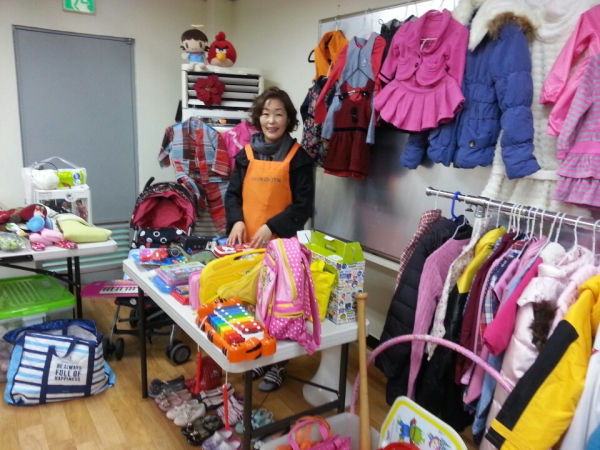
Jun 8, 2016 | Non categorizzato
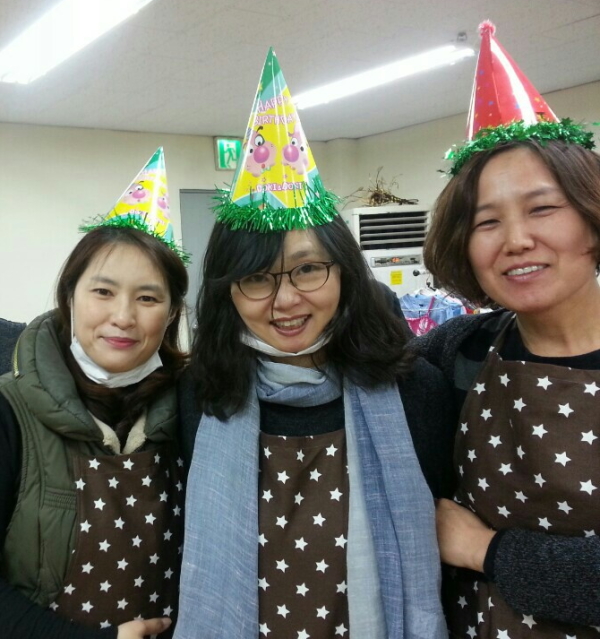 Seongnam, South Korea, more than a million inhabitants on the southeastern outskirts of Seoul, is a growing city with the presence of large companies that further the economic development of the area in a city where there is great wealth alongside abject poverty. “In Korea there is a strong immigration of women from several Asian countries: China, Vietnam, Cambodia, Japan, and more. They come here to marry or to escape from misery. Hence, the many multi-cultural families, most of them living in the poor areas of our city,” explains a Focolare group from Korea who were attending the OnCity international conference in Castelgandolfo, Italy. One of their greatest needs is integration.
Seongnam, South Korea, more than a million inhabitants on the southeastern outskirts of Seoul, is a growing city with the presence of large companies that further the economic development of the area in a city where there is great wealth alongside abject poverty. “In Korea there is a strong immigration of women from several Asian countries: China, Vietnam, Cambodia, Japan, and more. They come here to marry or to escape from misery. Hence, the many multi-cultural families, most of them living in the poor areas of our city,” explains a Focolare group from Korea who were attending the OnCity international conference in Castelgandolfo, Italy. One of their greatest needs is integration. 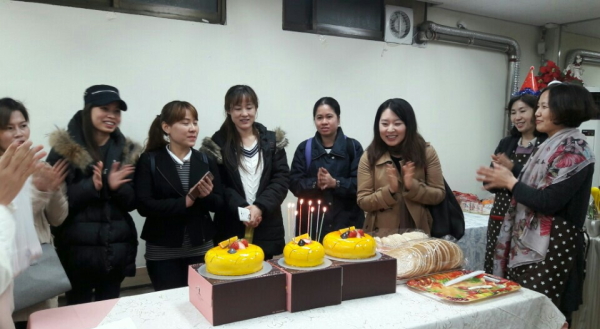 In the Multicultural Centre where some of the Focolare members work, they teach women immigrants to speak Korean, and have proposed establishing some kind of child care programme to entertain the children while their mothers learn the new language. “But at one point the government funding was removed and we couldn’t continue with our activity,” they say. “We told some friends who share our commitment in living ideals of unity and peace in our city. Each one of them gave what they could: time, skills – taking on the problems and situations of many people.” They were faced with truly painful situations: settling in a new country is not easy. For many, the Centre was a place where they could catch their breath, a place where they could share one another’s problems, especially financial problems.
In the Multicultural Centre where some of the Focolare members work, they teach women immigrants to speak Korean, and have proposed establishing some kind of child care programme to entertain the children while their mothers learn the new language. “But at one point the government funding was removed and we couldn’t continue with our activity,” they say. “We told some friends who share our commitment in living ideals of unity and peace in our city. Each one of them gave what they could: time, skills – taking on the problems and situations of many people.” They were faced with truly painful situations: settling in a new country is not easy. For many, the Centre was a place where they could catch their breath, a place where they could share one another’s problems, especially financial problems.  In 2012 we opened a small market where you could buy what you needed at a low cost. We called this small temporary project: The Mary of Nazareth Project. Many people helped us by donating clothing, toys, office supplies and linens.” What could be done with the small sum of around 353 Euros? “We decided to follow the Economy of Communion approach of distributing the profits: 1/3 for a family (a Cambodian family that our community had taken into its care until they could stand on their own); 1/3 to buy any additional things they might need; 1/3 for everyone in the group (to celebrate the birthdays of immigrants who didn’t have families with them). Finally, the Maria Market recived a donation from the government and the Centre decided to remodel the shop. But it was only reopened in 2014 after much expectation. The following year, they received a visit from the Mayor. In June 2015, with the spread of Mers in Korea, 2,900 schools were closed and 4,000 people were placed in isolation. Like many public locations the Centre also had to close. However, during the period of the shut-down, “we visited people in their homes and supported them in the little things. In the end, the Centre gave us a “Thank You” plaque. Now Maria Market is open again and always developing new ideas like mail delivery service for long distance customers. For the group running the project it continues to be “a concrete experience of answering the needs of our neediest sisters and brothers.”
In 2012 we opened a small market where you could buy what you needed at a low cost. We called this small temporary project: The Mary of Nazareth Project. Many people helped us by donating clothing, toys, office supplies and linens.” What could be done with the small sum of around 353 Euros? “We decided to follow the Economy of Communion approach of distributing the profits: 1/3 for a family (a Cambodian family that our community had taken into its care until they could stand on their own); 1/3 to buy any additional things they might need; 1/3 for everyone in the group (to celebrate the birthdays of immigrants who didn’t have families with them). Finally, the Maria Market recived a donation from the government and the Centre decided to remodel the shop. But it was only reopened in 2014 after much expectation. The following year, they received a visit from the Mayor. In June 2015, with the spread of Mers in Korea, 2,900 schools were closed and 4,000 people were placed in isolation. Like many public locations the Centre also had to close. However, during the period of the shut-down, “we visited people in their homes and supported them in the little things. In the end, the Centre gave us a “Thank You” plaque. Now Maria Market is open again and always developing new ideas like mail delivery service for long distance customers. For the group running the project it continues to be “a concrete experience of answering the needs of our neediest sisters and brothers.”
![Best wishes for Ramadan]()
Jun 7, 2016 | Non categorizzato
 The news summary will be made available on the Collegamento CH website a few days before the Internet transmission. On the same website one can find all the previous linkups in various languages, as full editions as well as individual news video clips. https://vimeo.com/170950751
The news summary will be made available on the Collegamento CH website a few days before the Internet transmission. On the same website one can find all the previous linkups in various languages, as full editions as well as individual news video clips. https://vimeo.com/170950751
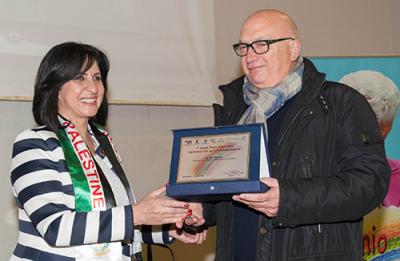
Jun 7, 2016 | Focolare Worldwide
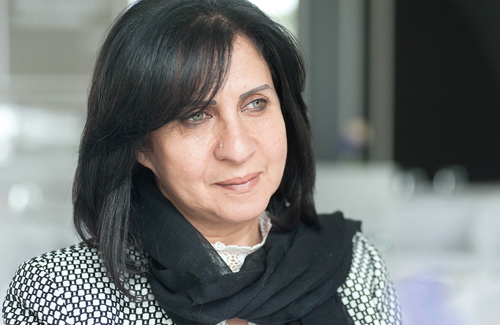 “I met Bella, a Jewish woman, at a Focolare centre in Jerusalem. I had told her the story about my husband in an Israeli jail where he was tortured. She listened to me, although I noted a certain inner conflict. She was in front of a crossroads: whether to be an Israeli and therefore reject everything I was saying, or to feel compassionate toward me. At first she wasn’t able to accept me and went back to the room where we had met. I followed her and told her I was sorry that I had upset her. Bella explained to me that it wasn’t my fault, but that of the system. Then I asked if we could begin again, and she was touched. That’s how our friendship was born. A wall separates my city of Bethlehem from her city of Jerusalem, but there are no longer walls between the two of us. I pray that many Israeli can look at our friendship. Bella lives the spirit of the Focolare in the sense that we’re all children of God, and it’s only love and compassion that leads us to live together with one another. We human beings have built a wall around Bethlehem, but you cannot build anything alone. God gave us the freedom to build it, or to tear it down within us as well.” This is how Vera Baboun, the first Catholic woman mayor of Bethlehem responded to the question of whether it was possible to establish true friendship between Palestinians and Israeli. The occasion of the meeting was the7th Chiara Lubich, Manfredonia City For Universal Brotherhood Award” in March 2016.
“I met Bella, a Jewish woman, at a Focolare centre in Jerusalem. I had told her the story about my husband in an Israeli jail where he was tortured. She listened to me, although I noted a certain inner conflict. She was in front of a crossroads: whether to be an Israeli and therefore reject everything I was saying, or to feel compassionate toward me. At first she wasn’t able to accept me and went back to the room where we had met. I followed her and told her I was sorry that I had upset her. Bella explained to me that it wasn’t my fault, but that of the system. Then I asked if we could begin again, and she was touched. That’s how our friendship was born. A wall separates my city of Bethlehem from her city of Jerusalem, but there are no longer walls between the two of us. I pray that many Israeli can look at our friendship. Bella lives the spirit of the Focolare in the sense that we’re all children of God, and it’s only love and compassion that leads us to live together with one another. We human beings have built a wall around Bethlehem, but you cannot build anything alone. God gave us the freedom to build it, or to tear it down within us as well.” This is how Vera Baboun, the first Catholic woman mayor of Bethlehem responded to the question of whether it was possible to establish true friendship between Palestinians and Israeli. The occasion of the meeting was the7th Chiara Lubich, Manfredonia City For Universal Brotherhood Award” in March 2016.  Bethlehem is a Palestinian city located in the West Bank. It has a population of 40,000 people, of which 28% are Christian and 72% Muslim. It is the city where Jesus was born, some 10 km south of Jerusalem. The Church of the Nativity is one of the oldest churches in the world. Nevertheless, “the wall also conditions our faith, because we were accustomed to visiting the original sites of Jesus’s life from the time we were children. There is a whole generation of young Palestinians that has never prayed at the Holy Sepluchre in Jerusalem,” said Vera Baboun. “We’re the Nativity capital of the world. We celebrate and offer a message of peace to the world, while peace is precisely what is missing in Bethlehem. After the 40% rate of cancellations this year we decided with the City Council to lower taxes on the tourist industry by 80%. We did it to offer them support even though it signifies a depletion of resources for the Municipality. But who supports us? Who supports our dual identity: our universal Christian identity and our Palestinian identity? But what makes you do it? “Only God’s love. I feel it very strongly. I don’t care at all about the power, the fame. Being mayor is a burden for me that costs me much. After the death of my husband and after having worked my whole life in education, I decided to take my husband’s place because he was involved politically in working for the liberation of Palestine.” You have often declared: “Will the world ever be able to live in peace as long as the city of peace is walled up?” “As long as the city of Bethlehem is walled up, there will be a wall around peace. We’re under siege. As for the world, it would be better to work at liberating peace not only for Bethlehem, but for our own sake to free ourselves from the way of evil, from using religion as a mask to cover up evil and war.” Interview byAurelio Molé for Città Nuova (see Città Nuova, No. 5, May 2016)
Bethlehem is a Palestinian city located in the West Bank. It has a population of 40,000 people, of which 28% are Christian and 72% Muslim. It is the city where Jesus was born, some 10 km south of Jerusalem. The Church of the Nativity is one of the oldest churches in the world. Nevertheless, “the wall also conditions our faith, because we were accustomed to visiting the original sites of Jesus’s life from the time we were children. There is a whole generation of young Palestinians that has never prayed at the Holy Sepluchre in Jerusalem,” said Vera Baboun. “We’re the Nativity capital of the world. We celebrate and offer a message of peace to the world, while peace is precisely what is missing in Bethlehem. After the 40% rate of cancellations this year we decided with the City Council to lower taxes on the tourist industry by 80%. We did it to offer them support even though it signifies a depletion of resources for the Municipality. But who supports us? Who supports our dual identity: our universal Christian identity and our Palestinian identity? But what makes you do it? “Only God’s love. I feel it very strongly. I don’t care at all about the power, the fame. Being mayor is a burden for me that costs me much. After the death of my husband and after having worked my whole life in education, I decided to take my husband’s place because he was involved politically in working for the liberation of Palestine.” You have often declared: “Will the world ever be able to live in peace as long as the city of peace is walled up?” “As long as the city of Bethlehem is walled up, there will be a wall around peace. We’re under siege. As for the world, it would be better to work at liberating peace not only for Bethlehem, but for our own sake to free ourselves from the way of evil, from using religion as a mask to cover up evil and war.” Interview byAurelio Molé for Città Nuova (see Città Nuova, No. 5, May 2016)
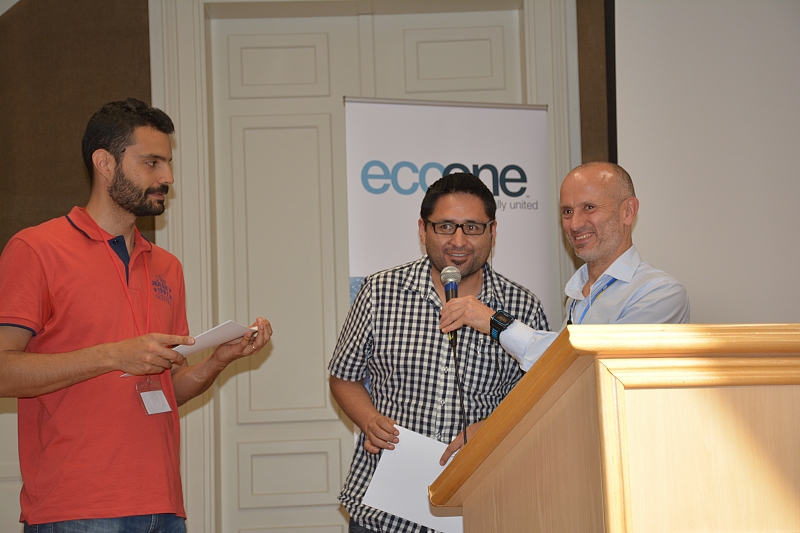
Jun 6, 2016 | Non categorizzato
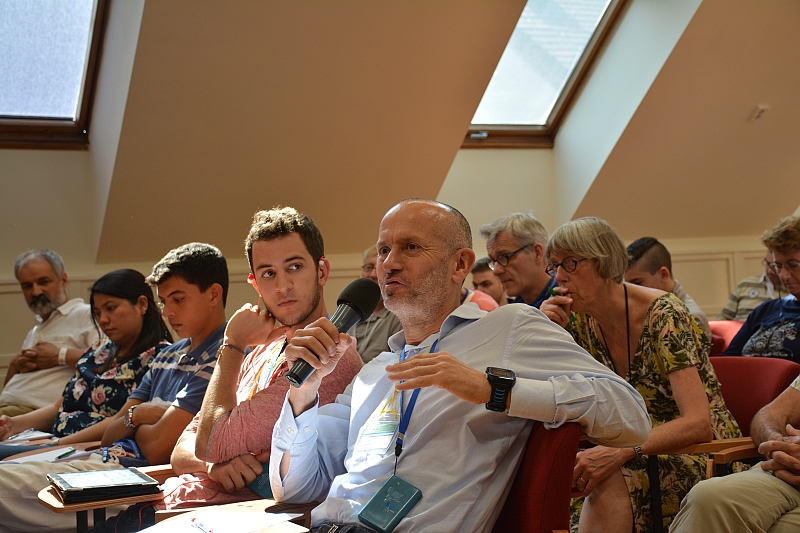 The international coordinator of EcoOne called it “a successful experiment that has addressed a word of hope: A human being who is open to being a gift could in fact be the answer to the epochal environmental challenges that humankind finds itself facing. The meeting was held in Budapest, Hungary from May 27 until May 29 at the Pázmány Péter Catholic University and was attended by 80 representatives of environmental NGOs, university faculty, civil servants, professionals in the field of environment, and high school and university students from different countries. High-level scientific presentations were accompanied by practical experiences and transdisciplinary reflection on fields such as economics and political ethics. There were several presentations: from a 15 year-old boy to an elderly man who is dedicated to caring for the environment in the Focolare town in Holland. Three Italian students presented their experience that straddled energy-saving and the culture of giving. Erasmus, a student in Budapest, a student from Rome and a Brazilian also presented their experiences. The young man from Brazil paid for the trip by making and selling knick-knacks, and receiving a contribution from his university that made an exception in his case.
The international coordinator of EcoOne called it “a successful experiment that has addressed a word of hope: A human being who is open to being a gift could in fact be the answer to the epochal environmental challenges that humankind finds itself facing. The meeting was held in Budapest, Hungary from May 27 until May 29 at the Pázmány Péter Catholic University and was attended by 80 representatives of environmental NGOs, university faculty, civil servants, professionals in the field of environment, and high school and university students from different countries. High-level scientific presentations were accompanied by practical experiences and transdisciplinary reflection on fields such as economics and political ethics. There were several presentations: from a 15 year-old boy to an elderly man who is dedicated to caring for the environment in the Focolare town in Holland. Three Italian students presented their experience that straddled energy-saving and the culture of giving. Erasmus, a student in Budapest, a student from Rome and a Brazilian also presented their experiences. The young man from Brazil paid for the trip by making and selling knick-knacks, and receiving a contribution from his university that made an exception in his case.  Five young researchers received the Piero Pasolini Prize for the quality of their presentations, thanks to the financial support of the Economy of Communion. “Several agencies of the Focolare Movement were involved in the preparation of the event: Action for a United World, Economy of Communion, New Humanity Movement, New Humanity, Young for Unity, Movement Politics & Policy for Unity., Sophia University Institute and an excellent logistical team from the Hungarian EcoOne Group,” Fiorani affirmed. Zsusa Román, the coordinator of EcoOne in Hungary opened the event with a question: “What kind of person does it take to care for the environment?” Fiorani went on to present the features and objectives of EcoOne as: “a cultural initiative at an international level, promoted by experts, researchers and professionals that work in the environmental science sector. We share a common desire to enrich our scientific knowledge with a humanistic approach to ecological and naturalistic problems. With our partners who join us in pursuing a global sharing of the world’s goods and a close interdependence among countries, EcoOne attempts to make such principles flow into society, politics and economy inasmuch as they are also related to the topic of the environment.” Auxiliary Bishop of Esztergom, Hungary, János Székely cited the importance of “sobriety and of the gift” in line with Pope Francis’s Laudato si. A lively debate followed the presentation by Professor Miguel Panão, which focused on a new anthropological notion of the human person as someone in the act of giving himself or herself to others and to nature. The roundtable was particularly appreciated in which the social challenges that are posed by the environment were discussed from a theological, climatological, economic and political point of view, underscoring how much the environmental problem requires the contribution of many disciplines, beginning with politics which guides decisions, and the economy that sets up the models of development. Fiorani concluded saying: “The meeting isn’t an arrival point, but a point of departure. Now we have to prepare for new challenges. The next meeting will be held in Asia!” Info: EcoOne
Five young researchers received the Piero Pasolini Prize for the quality of their presentations, thanks to the financial support of the Economy of Communion. “Several agencies of the Focolare Movement were involved in the preparation of the event: Action for a United World, Economy of Communion, New Humanity Movement, New Humanity, Young for Unity, Movement Politics & Policy for Unity., Sophia University Institute and an excellent logistical team from the Hungarian EcoOne Group,” Fiorani affirmed. Zsusa Román, the coordinator of EcoOne in Hungary opened the event with a question: “What kind of person does it take to care for the environment?” Fiorani went on to present the features and objectives of EcoOne as: “a cultural initiative at an international level, promoted by experts, researchers and professionals that work in the environmental science sector. We share a common desire to enrich our scientific knowledge with a humanistic approach to ecological and naturalistic problems. With our partners who join us in pursuing a global sharing of the world’s goods and a close interdependence among countries, EcoOne attempts to make such principles flow into society, politics and economy inasmuch as they are also related to the topic of the environment.” Auxiliary Bishop of Esztergom, Hungary, János Székely cited the importance of “sobriety and of the gift” in line with Pope Francis’s Laudato si. A lively debate followed the presentation by Professor Miguel Panão, which focused on a new anthropological notion of the human person as someone in the act of giving himself or herself to others and to nature. The roundtable was particularly appreciated in which the social challenges that are posed by the environment were discussed from a theological, climatological, economic and political point of view, underscoring how much the environmental problem requires the contribution of many disciplines, beginning with politics which guides decisions, and the economy that sets up the models of development. Fiorani concluded saying: “The meeting isn’t an arrival point, but a point of departure. Now we have to prepare for new challenges. The next meeting will be held in Asia!” Info: EcoOne
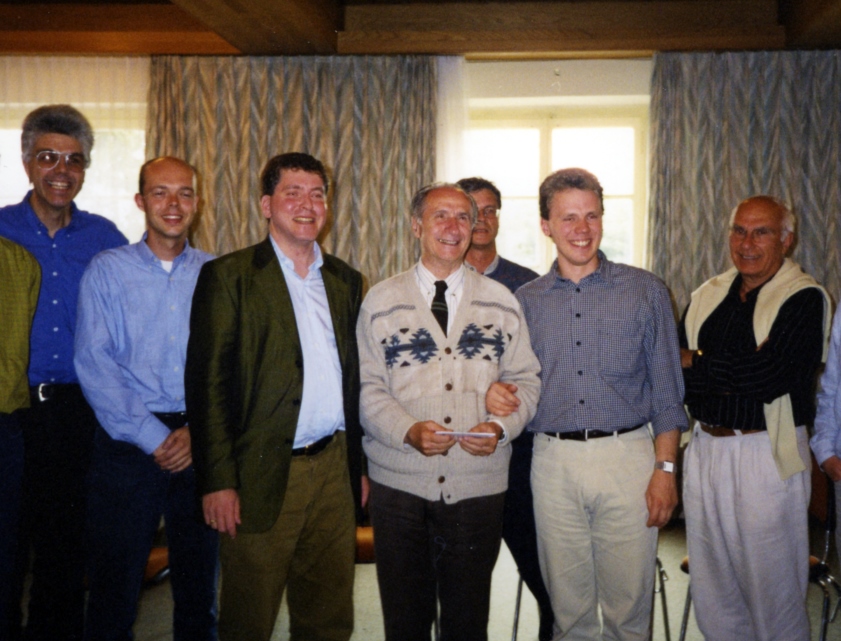
Jun 5, 2016 | Non categorizzato
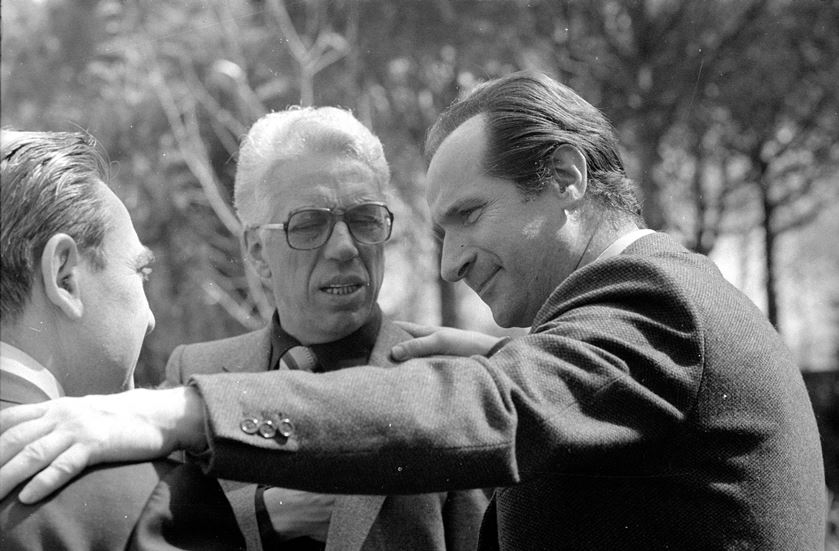
Giorgio Marchetti (right) with Gino Bonadimani and Aldo Stedile. Photo © CSC Audiovisivi
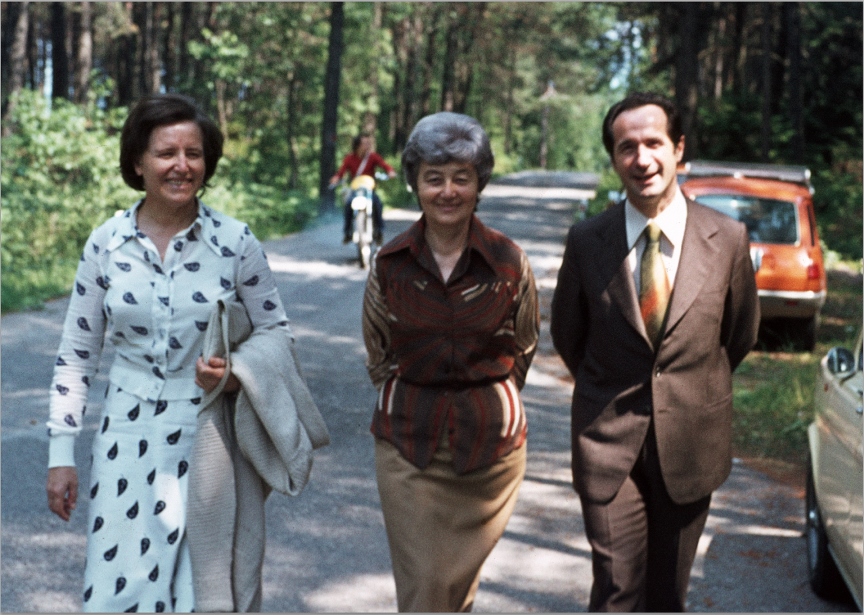
(from left) Valeria Ronchetti, Chiara Lubich and Giorgio Marchetti. Photo © CSC Audiovisivi
 Former head of the Section of the Focolarini from 1957, he returned to that task in 2000, a task that he carried out with dedication. He gave special attention to the married focolarini and the particular nature of their vocation. While strongly dedicated to others, Fede – with his scholarly attitude – did never failed to delve into a variety of disciplines. From 1995 he was a member of the Abba School, the Movement’s Centre for Interdisciplinary Studies where he offered his expertise in the field of ethics, but also philosophy and psychology. In the final years, with his health problems, a period began that Fede loved to describe as “one of the most beautiful periods of my life, so much so that I often find myself saying to Jesus: ‘I never knew that old age could be a beautiful adventure like this!” It was characterized by an “ever deeper and more intimate relationship with Jesus.” When people asked him how he was feeling, he would answer: “physically bad, but spiritually beautiful!” Fede’s legacy is certainly his unbreakable faith in God and in the charism of unity. His legacy is certainly that of a wise and efficacious builder of a work of God – the Focolare Movement, which he helped to develop and to make visible and active in the Church and in the world.
Former head of the Section of the Focolarini from 1957, he returned to that task in 2000, a task that he carried out with dedication. He gave special attention to the married focolarini and the particular nature of their vocation. While strongly dedicated to others, Fede – with his scholarly attitude – did never failed to delve into a variety of disciplines. From 1995 he was a member of the Abba School, the Movement’s Centre for Interdisciplinary Studies where he offered his expertise in the field of ethics, but also philosophy and psychology. In the final years, with his health problems, a period began that Fede loved to describe as “one of the most beautiful periods of my life, so much so that I often find myself saying to Jesus: ‘I never knew that old age could be a beautiful adventure like this!” It was characterized by an “ever deeper and more intimate relationship with Jesus.” When people asked him how he was feeling, he would answer: “physically bad, but spiritually beautiful!” Fede’s legacy is certainly his unbreakable faith in God and in the charism of unity. His legacy is certainly that of a wise and efficacious builder of a work of God – the Focolare Movement, which he helped to develop and to make visible and active in the Church and in the world.
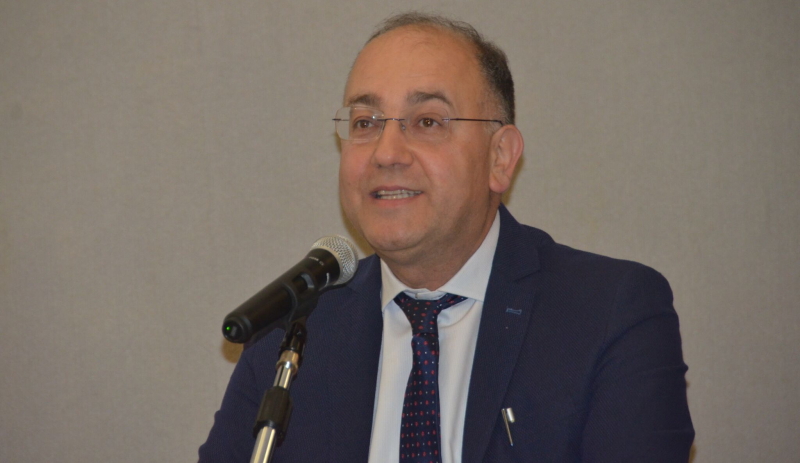
Jun 4, 2016 | Non categorizzato

Luigino Bruni
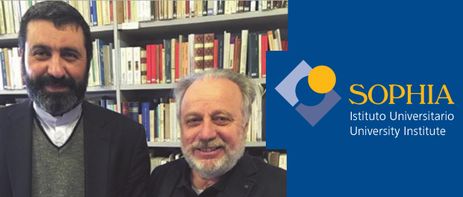
Jun 3, 2016 | Focolare Worldwide
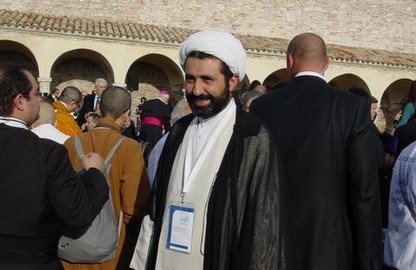 The bi-monthly journal of the British Islamic Cultural Centre published a brief account of the recent visit to the Sophia University Institute by Dr Mohammad Ali Shomali, Director of the International Institute of Islamic Studies in Qum, Iran. Dr Shomali, who currently lives in London and directs the Islamic Centre in Great Britain, is a well-known figure in the Shia world. He is very active in the field of interreligious dialogue, and thanks to him various moments of encounter between Shi’a Muslims and Benedictine Monks have been organised organised, allowing relationships of trust to be established. The visit on 26 April to Sophia is a consequence of the long and fruitful pathway which made the shared experience and academic collaboration possible in Loppiano which has this characteristic. Islam today reported the news of this visit highlighting the importance of this extraordinary growing friendship. Here are some extracts: Sophia University Institute in Loppiano (Florence, Italy) was established in honour of Chiara Lubich (founder of the Focolare Movement) in 2008 after her death. The relationship between the university and the Shi’a Scholars started long before it became a university. Hujjatul-Islam Dr Muhammad Ali Shomali’s first visit took place back in 1999. These meeting represent the foundation of a long friendship and dialogue. Discussions varied from talking about Sophia (Latin meaning Wisdom) to the future of humanity. From the discussion between the university academics and Shi’a scholars it soon became clear that they had many common ideas about unity and inter-religious dialogue that could be developed in practical projects.
The bi-monthly journal of the British Islamic Cultural Centre published a brief account of the recent visit to the Sophia University Institute by Dr Mohammad Ali Shomali, Director of the International Institute of Islamic Studies in Qum, Iran. Dr Shomali, who currently lives in London and directs the Islamic Centre in Great Britain, is a well-known figure in the Shia world. He is very active in the field of interreligious dialogue, and thanks to him various moments of encounter between Shi’a Muslims and Benedictine Monks have been organised organised, allowing relationships of trust to be established. The visit on 26 April to Sophia is a consequence of the long and fruitful pathway which made the shared experience and academic collaboration possible in Loppiano which has this characteristic. Islam today reported the news of this visit highlighting the importance of this extraordinary growing friendship. Here are some extracts: Sophia University Institute in Loppiano (Florence, Italy) was established in honour of Chiara Lubich (founder of the Focolare Movement) in 2008 after her death. The relationship between the university and the Shi’a Scholars started long before it became a university. Hujjatul-Islam Dr Muhammad Ali Shomali’s first visit took place back in 1999. These meeting represent the foundation of a long friendship and dialogue. Discussions varied from talking about Sophia (Latin meaning Wisdom) to the future of humanity. From the discussion between the university academics and Shi’a scholars it soon became clear that they had many common ideas about unity and inter-religious dialogue that could be developed in practical projects. Dr Shomali’s recent visit to the university took place in February 2015, where he held public as well as informal meetings with staff and students. Following that meeting Dr Shomali was invited by the president of the university Professor Msgr. Coda Piero to return to the university and teach a course to MA students which was scheduled to start in 2016. The course which is based on inter-religious dialogue was for the first time to be taught by lecturers from different religious traditions in order to share similar experiences and ideas. Dr Shomali delivered his first lecture during a four-hour morning and afternoon session in April 2016. He talked about his personal involvement in inter-religious dialogue, presenting a brief summary of his twenty-year rich experience in the field of interfaith. A part of his discussion was also about Shia Islam and the foundation for dialogue according to Shia Islam. Dr Shomali further spoke about the importance of inter-religious dialogue and the future of humanity based on unity. Following this academic engagement, the plan is to have a three-day programme in July 2016 (after the month of Ramadhan). The university president Prof. Coda Piero and Dr Shomali will be discussing subjects related to unity between different faith groups, Muslim and Christians in particular and some of the ideas can be put into action in the near future. Hujjatul-Islam Dr Shomali will be taking a group of scholars in the next encounter to present the Muslim Shia perspective while Professor Coda Piero will lead the Catholic/Focolare Movement side. “The April meeting was a fruitful meeting. After many years of friendship and talk, the two groups are now ready to move into more focused, scholarly but at the same time spiritual discussion on unity and cooperation,” said Dr Shomali.
Dr Shomali’s recent visit to the university took place in February 2015, where he held public as well as informal meetings with staff and students. Following that meeting Dr Shomali was invited by the president of the university Professor Msgr. Coda Piero to return to the university and teach a course to MA students which was scheduled to start in 2016. The course which is based on inter-religious dialogue was for the first time to be taught by lecturers from different religious traditions in order to share similar experiences and ideas. Dr Shomali delivered his first lecture during a four-hour morning and afternoon session in April 2016. He talked about his personal involvement in inter-religious dialogue, presenting a brief summary of his twenty-year rich experience in the field of interfaith. A part of his discussion was also about Shia Islam and the foundation for dialogue according to Shia Islam. Dr Shomali further spoke about the importance of inter-religious dialogue and the future of humanity based on unity. Following this academic engagement, the plan is to have a three-day programme in July 2016 (after the month of Ramadhan). The university president Prof. Coda Piero and Dr Shomali will be discussing subjects related to unity between different faith groups, Muslim and Christians in particular and some of the ideas can be put into action in the near future. Hujjatul-Islam Dr Shomali will be taking a group of scholars in the next encounter to present the Muslim Shia perspective while Professor Coda Piero will lead the Catholic/Focolare Movement side. “The April meeting was a fruitful meeting. After many years of friendship and talk, the two groups are now ready to move into more focused, scholarly but at the same time spiritual discussion on unity and cooperation,” said Dr Shomali.
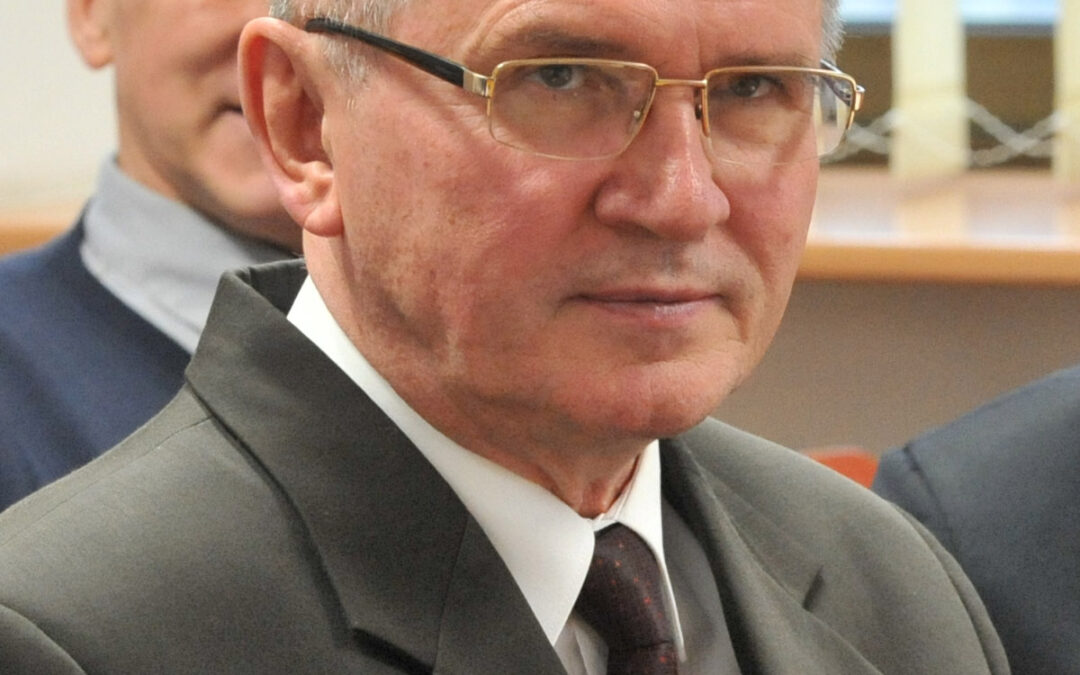
Jun 3, 2016 | Focolare Worldwide
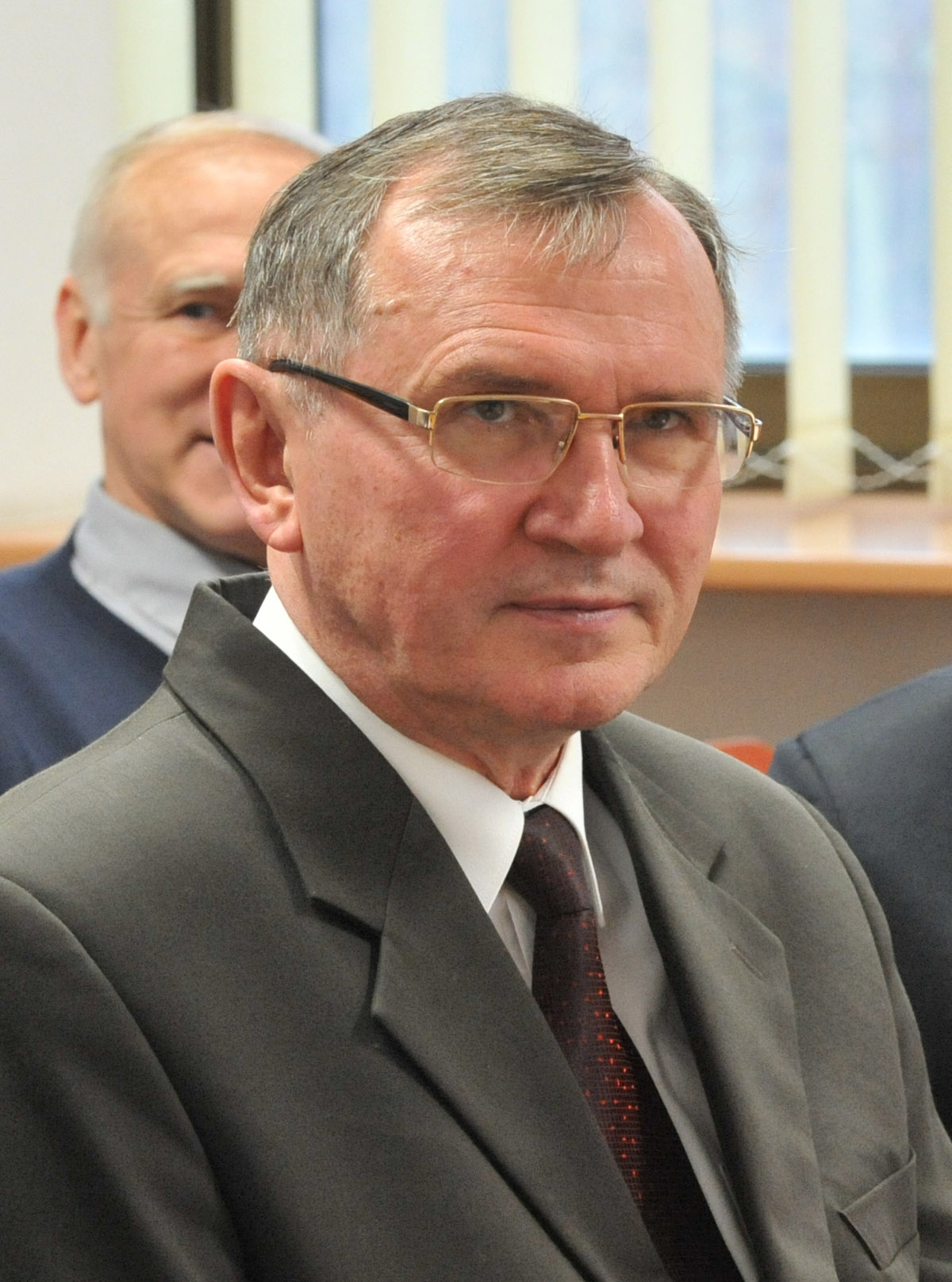 The conferral of the Honorary Doctorate to Focolare foundress, Chiara Lubich (1920-2008) originated with Adam Biela. At that time he was the Chair of the School of Social Sciences at the Catholic University of Lublino. Following that honorary degree 15 others would be conferred to Chiara from around the world and in a variety academic fields. In his conferral speech Professor Biela spoke of a “Copernican Revolution” to introduce the idea of a new approach (paradigm) for the social sciences. We ask Biela what motivated him to promote the doctorate. “In my conferral speech I had explained the main reasons for the conferral of the Honorary Doctorate in Social Sciences to the foundress of the Focolare Movement, Chiara Lubich, by the Catholic University of Lublin in June 1996. An American philosopher of science, Thomas Kun (1962) thought the Copernican Revolution was the best illustration of what took place with the scientific revolution. In its essence [the Copernican approach or paradigm] signified a change of mentality. Copernicus had to change the firmly-established geocentric system that was at work not only in the sciences of his time, but also in the culture, tradition, perception of society, even in the mentality of the religious and political authorities. And he did it in a manner that was careful, empirical, methodological and psychological. In a similar way, through her social activity, Chiara Lubich was the source of a revolutionary inspiration for the creation of an approach (paradigm) in the field of social sciences. In an extremely dangerous situation in Trent, Italy, in 1943 she decided not to escape from the threat to her own life, but to join her friends in helping other people survive who were in far more difficult situations. She decided to face the risk of the bombardments of the War, in order to stay with the children and elderly who were left all alone and in need of assistance. That type of experience made her rediscover the community as a model of life, and it allowed the charism of unity to be materialized and clarified. In any case the devolopment of this charism shows it to be a concrete and practical actualization of a new vision of social, economic, political, educational, religious and relational structures, which guides, suggests, encourages and promotes unity with other people. In my conferral speech I used the idea of a unity approach (paradigm) to stress the social activity of Chiara Lubich and the Focolare Movement for the construction of psycho-social structures for unity in different fields: for example, in the Economy of Communion in the Political Movement for Unity; in Net One and its journalists for unity; in ecumenical and interreligious friendships.” On June 3rd and June 4th an academic conference titled “Conflicts, Dialogue and the Culture of Unity” and dedicated to John Paul II will be held at the University in Lublin. What is the purpose? “In June 1966 the John Paul II Catholic University had truly found a methodological way to express the novelty, uniqueness, heuristic and applicable value of the charism of unity not only in the social sciences, but also in other academic fields. We are truly pleased that our message about the methodological validity of the charism of unity has found an understanding in so many academic centres that they have conferred honorary degrees to Chiara Lubich. The concept of a unity approach (paradigm) is a big inspiration that will lead the social sciences to come up with their own research models with a power and mental and methodological potential that will be able to offer a new social vision of the world. In the meantime, the Conflicts, Dialogue and Culture of Unity Conference will examine the extent to which the praxis of the unity approach (paradigm) that is founded on the spirituality of unity, is able to resolve conceptual problems, as well as applications for the building of social, economic and political integration in today’s Europe and in the world.”
The conferral of the Honorary Doctorate to Focolare foundress, Chiara Lubich (1920-2008) originated with Adam Biela. At that time he was the Chair of the School of Social Sciences at the Catholic University of Lublino. Following that honorary degree 15 others would be conferred to Chiara from around the world and in a variety academic fields. In his conferral speech Professor Biela spoke of a “Copernican Revolution” to introduce the idea of a new approach (paradigm) for the social sciences. We ask Biela what motivated him to promote the doctorate. “In my conferral speech I had explained the main reasons for the conferral of the Honorary Doctorate in Social Sciences to the foundress of the Focolare Movement, Chiara Lubich, by the Catholic University of Lublin in June 1996. An American philosopher of science, Thomas Kun (1962) thought the Copernican Revolution was the best illustration of what took place with the scientific revolution. In its essence [the Copernican approach or paradigm] signified a change of mentality. Copernicus had to change the firmly-established geocentric system that was at work not only in the sciences of his time, but also in the culture, tradition, perception of society, even in the mentality of the religious and political authorities. And he did it in a manner that was careful, empirical, methodological and psychological. In a similar way, through her social activity, Chiara Lubich was the source of a revolutionary inspiration for the creation of an approach (paradigm) in the field of social sciences. In an extremely dangerous situation in Trent, Italy, in 1943 she decided not to escape from the threat to her own life, but to join her friends in helping other people survive who were in far more difficult situations. She decided to face the risk of the bombardments of the War, in order to stay with the children and elderly who were left all alone and in need of assistance. That type of experience made her rediscover the community as a model of life, and it allowed the charism of unity to be materialized and clarified. In any case the devolopment of this charism shows it to be a concrete and practical actualization of a new vision of social, economic, political, educational, religious and relational structures, which guides, suggests, encourages and promotes unity with other people. In my conferral speech I used the idea of a unity approach (paradigm) to stress the social activity of Chiara Lubich and the Focolare Movement for the construction of psycho-social structures for unity in different fields: for example, in the Economy of Communion in the Political Movement for Unity; in Net One and its journalists for unity; in ecumenical and interreligious friendships.” On June 3rd and June 4th an academic conference titled “Conflicts, Dialogue and the Culture of Unity” and dedicated to John Paul II will be held at the University in Lublin. What is the purpose? “In June 1966 the John Paul II Catholic University had truly found a methodological way to express the novelty, uniqueness, heuristic and applicable value of the charism of unity not only in the social sciences, but also in other academic fields. We are truly pleased that our message about the methodological validity of the charism of unity has found an understanding in so many academic centres that they have conferred honorary degrees to Chiara Lubich. The concept of a unity approach (paradigm) is a big inspiration that will lead the social sciences to come up with their own research models with a power and mental and methodological potential that will be able to offer a new social vision of the world. In the meantime, the Conflicts, Dialogue and Culture of Unity Conference will examine the extent to which the praxis of the unity approach (paradigm) that is founded on the spirituality of unity, is able to resolve conceptual problems, as well as applications for the building of social, economic and political integration in today’s Europe and in the world.”
 “May glory be upon you my Lord, He who is the Adored One, the One to be adored, the Eternal One, who existed from all times, who loves us, whose Mercy and Power embrace the universe (…). You are the Adored One, Oh Lord, You are the Master who loves and forgives. Your forgiveness and Your mercy are infinite, Oh Lord, You help those who are afflicted, the Consoler in every grief, the Refuge for those whose heart is broken.” (From a prayer by Ali ibn Abi Talib, cousin and son-in-law of the Islamic prophet Muhammad)
“May glory be upon you my Lord, He who is the Adored One, the One to be adored, the Eternal One, who existed from all times, who loves us, whose Mercy and Power embrace the universe (…). You are the Adored One, Oh Lord, You are the Master who loves and forgives. Your forgiveness and Your mercy are infinite, Oh Lord, You help those who are afflicted, the Consoler in every grief, the Refuge for those whose heart is broken.” (From a prayer by Ali ibn Abi Talib, cousin and son-in-law of the Islamic prophet Muhammad)














 The bi-monthly journal of the British Islamic Cultural Centre published a brief account of the recent visit to the Sophia University Institute by Dr Mohammad Ali Shomali, Director of the International Institute of Islamic Studies in Qum, Iran. Dr Shomali, who currently lives in London and directs the Islamic Centre in Great Britain, is a well-known figure in the Shia world. He is very active in the field of interreligious dialogue, and thanks to him various moments of encounter between Shi’a Muslims and Benedictine Monks have been organised organised, allowing relationships of trust to be established. The visit on 26 April to Sophia is a consequence of the long and fruitful pathway which made the shared experience and academic collaboration possible in Loppiano which has this characteristic.
The bi-monthly journal of the British Islamic Cultural Centre published a brief account of the recent visit to the Sophia University Institute by Dr Mohammad Ali Shomali, Director of the International Institute of Islamic Studies in Qum, Iran. Dr Shomali, who currently lives in London and directs the Islamic Centre in Great Britain, is a well-known figure in the Shia world. He is very active in the field of interreligious dialogue, and thanks to him various moments of encounter between Shi’a Muslims and Benedictine Monks have been organised organised, allowing relationships of trust to be established. The visit on 26 April to Sophia is a consequence of the long and fruitful pathway which made the shared experience and academic collaboration possible in Loppiano which has this characteristic. 
 The conferral of the Honorary Doctorate to Focolare foundress,
The conferral of the Honorary Doctorate to Focolare foundress,